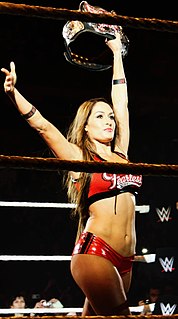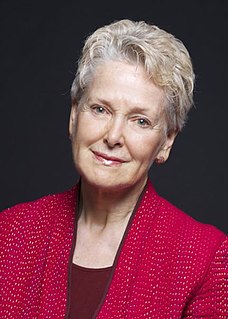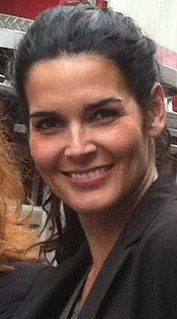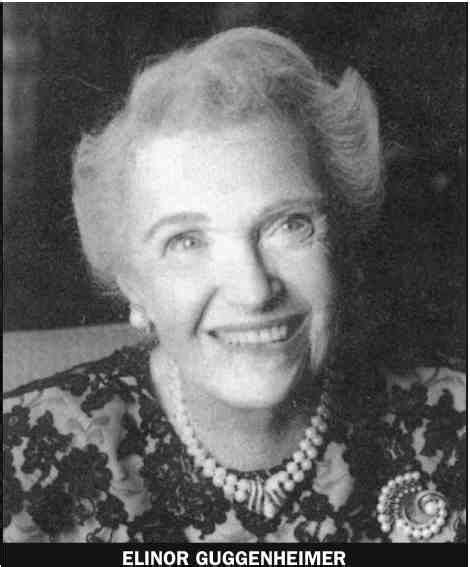A Quote by June Diane Raphael
There were a lot of different things [in The Women's Room ]. I don't really want to summarize it in this way. It's about a woman's awakening, a woman who came of age in the '50s and is a teenager - actually, she's a little bit older - in the '60s and part of the women's movement and how she ends up there.
Related Quotes
There is a true feminist movement in Buddhism that relates to the goddess T?r?. Following her cultivation of bodhicitta, the bodhisattva's motivation, she looked upon the situation of those striving towards full awakening and she felt that there were too few people who attained Buddhahood as women. So she vowed, 'I have developed bodhicitta as a woman. For all my lifetimes along the path I vow to be born as a woman, and in my final lifetime when I attain Buddhahood, then, too, I will be a woman.'
When I was a young woman, I had this friend who was really beautiful, and she would talk about how she was losing her looks, that she wasn't as pretty as she once was. She was gorgeous, and I thought, I'm going to stop this bad habit of self-criticism that I think a lot of women get into. You make a choice to be different.
Women sometimes really love to look at other beautiful women on the screen. But they don't look at a woman the way a man looks at a woman. They want to be that woman. They like if a woman is beautiful or sexy, especially if she's powerful. They like to see her catch a man, or to be powerful in the world. I think this is why a lot of women love noir films and classic films because they can really identify with these really strong, beautiful women. That's the kind of power that women have lost culturally.
It just struck me as really odd that there were all of these conversations going on about what young women were up to. Were young women having too much sex? Were young women politically apathetic? Are young women socially engaged or not? And whenever these conversations were happening, they were mostly happening by older women and by older feminists. And maybe there would be a younger woman quoted every once in a while, but we weren't really a central part of that conversation. We weren't really being allowed to speak on our own behalf.
Women tend to be more interested in reconciliation. A Kenyan woman leader said to me, "You know, in a war, men and women want different things. The men care a lot about territory. And they care where the borders are. And they want this whole state. The women," she said, "they want a safe place." And she put her fingers like this, "They want a safe place for their children to go to school without being shot, for their daughters to not be raped."
I talked to my mother about it a lot. I asked her what it was like to grow up in New York and Harlem in the 1920s and 1930s, and I asked her about a woman leaving her husband. I asked her about how she would feel about that woman, and my mother grew up in the Church Of God In Christ, and she told me that the woman might be isolated because the other women thought she might go and come after their husbands. That's how they thought then.
For woman's chief want is to feel that she is wanted. Therefore it is that with women, cruelty is more easily borne than coldness. Indeed, It is astonishing how much downright cruelty a woman will stand from the man she loves or has loved. What women admire is a subtle combination of forcefulness and gentleness. If a woman has to choose between forcefulness and gentleness, always she will sacrifice the latter.
The extraordinary woman depends on the ordinary woman. It is only when we know what were the conditions of the average woman's life - the number of children, whether she had money of her own, if she had a room to herself, whether she had help bringing up her family, if she had servants, whether part of the housework was her task - it is only when we can measure the way of life and experience made possible to the ordinary woman that we can account for the success or failure of the extraordinary woman as a writer.
I object to the hypersexualization of all the superheroines. Most of them have been hypersexualized, but especially to Wonder Woman, because she is an icon. She is up there with Superman and Batman. And she is the one who is the big influence on women. Women who don't read comics still know who Wonder Woman is.
There is a theory, that I rather subscribe to. The frame story implies that if he doesn't change, she will kill him. It's all very complex and subtle. The story is about a woman who persuades a man in power to a different temper and attitude, and so it is about women's wiles, what women will get up to. She has a plan, she has a scheme.
When we were trying to find the woman to play Maura Isles, it was a no-brainer when Sasha came in. We just knew it was her, and she did such a fantastic job. She got the job, right then and there, in the room, and it was great. We actually played a little joke on her. She's a great lady and we've had a really, really fantastic time.
Prejudice against womenis many, many times intensified against older women. You are viewed not as an intellect but as a body.... Astonishingly, even women's liberation has paid extraordinarily little attention to the older woman and to the fact that her job is limited because she is [older]. They say that women shouldn't be sex objects, but you damned well better be a sex object if you want to get ahead in television.
The real trouble about women is that they must always go on trying to adapt themselves to men's theories of women, as they alwayshave done. When a woman is thoroughly herself, she is being what her type of man wants her to be. When a woman is hysterical it's because she doesn't quite know what to be, which pattern to follow, which man's picture of woman to live up to.




































